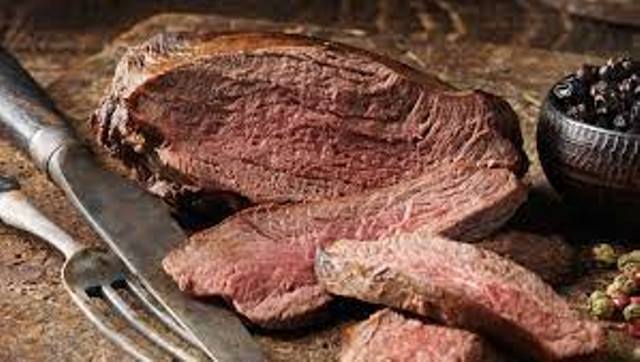No matter the diet, people are eager to eat healthier and more nutritious foods. As a result, they are discovering other types of meat besides beef and other red meats.
However, venison, also known as deer meat or venison meat, is not popular, despite its leanness, rich flavor, and low calories.
Venison is also popular because it is versatile, making it suitable for making meatballs, steak, roasts, burgers, and stew.
Here we will cover the numerous health benefits of venison in detail, share some venison nutrition fats, and discuss why venison is the perfect healthy alternative meat to add to your diet.
A High-Quality Protein Source
Venison is a perfect choice if you are open to learning more about your lean meat options.
Deet meat contains slightly higher amounts of protein than other red meat, making it a perfect type of meat for those increasing their protein intake for weight loss.
Venison contains the full amount of essential amino acids, like linoleic acid, a fatty acid that our bodies require yet cannot make on their own.
Every 3 ounces of venison contains an estimated 24 grams of protein, a good source of protein as part of a healthy diet.
A Lean Protein Option
Most cuts of venison are very lean, meaning they do not have a high-fat content and, therefore, fewer calories than other meats.
Wild game meat is considered healthy because it contains very little saturated fat or cholesterol.
Reducing the amount of saturated fat consumed is said to help decrease the risk of heart attacks, heart disease, clogging of blood vessels, and more1.
Switching to a leaner meat option like venison is a great way to add more lean meat to your diet.
This is also a great option for anyone concerned about their cholesterol levels.
Prevents Anemia
Anemia is a health condition that occurs when the body does not produce enough red blood cells—symptoms of this condition range from fatigue, fast heartbeat, pale skin, and dizziness.
Several factors contribute to anemia, but a lack of minerals and important vitamins are the most common.
The lack of vitamin B12 and iron in the body impairs red blood cell production, leading to anemia2.
Fortunately, venison is an excellent source of minerals and vitamins like B vitamins, which can help produce healthy red blood cells.
Strengthens the Immune System
Venison is rich in zinc, an essential mineral that plays an important role in our bodies.
Zinc helps in the normal development and growth of immune cells. Zinc also prevents the oxidative stress caused by inflammation3.
Adequate intake of zinc sourced in venison reduces symptoms of the common cold and the duration of respiratory infections common in children and adults in cool areas.
Promotes Recovery and Muscle Growth
Deer meat is rich in proteins, essential nutrients which are body-building foods.
One of their biggest benefits is that they can help repair body tissues.
Since protein is a building block for muscles, bones, cartilage, and skin, having enough protein in your diet will boost your muscle mass.
Venison also contains L-glutamine, which aids in muscle recovery4.
In addition, taking L-glutamine supplements decreases muscle soreness and speeds up recovery.
Boosts Brain Function
The types of foods we eat have a great impact on the health of our brain.
For example, deer meat contains vitamins and minerals that improve the brain’s cognitive function, boosting our memory and fine-tuning focus.
Vitamin B12 contained in venison improves memory and learning ability5.
Vitamin B3 helps prevent cognitive decline that causes conditions such as Alzheimer’s.
Vitamin B6, on the other hand, helps improve mental health and boosts your mood.
Environmentally-Friendly
Most deer hunters already know this, but venison is one of the most environmentally friendly types of meat.
Deer live in their most natural state without contact with any chemicals.
Once humans consume venison, the human wastes improve nutrient cycling.
Human waste returns to the cycle of building the nutritional value of the deer foods that will eventually be humans’ food source.
Human waste also improves soil fertility and the general health of topsoil, which is of great value to the growth of wild plants consumed by deer.
Sustainable Resource
Deer in their natural habitat consume a relatively low amount of resources.
Compared to other animals like beef cattle, deer, or even elk meat, they will hardly exhaust their resources.
Wild plants will hardly be depleted to create a food shortage for the deer.
In addition, nature provides a sustainable amount of food for wild animals, unlike farmed animals that die during drought.
Deer populations are hearty in the United States, and hunting is a great way to source your meat.
Source: cookvenison.com










